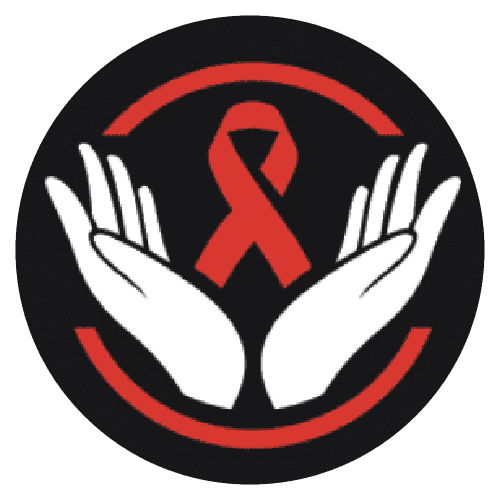How Often Should I Get Tested For HIV?

Posted on Oct 16th, 2022.
Getting tested for HIV, or the human immunodeficiency virus, can be a daunting experience, especially for queer people who are still living with the trauma of the ongoing HIV/AIDS epidemic and decades of inadequate government responses.
Unfortunately, in many areas of the country, especially in Atlanta, Georgia there is still stigma attached to HIV, despite major breakthroughs in testing capabilities and medical treatments that have made living a longer life with it entirely possible. In fact, medications such as PrEP have created a world where you can be proactive in protecting yourself from HIV before having sex.
Still, even if you’re taking PrEP or practicing safe sex, regular HIV testing is important for the health of you and your community. An estimated 1.2 million people are currently living with HIV in the United States according to the U.S. Centers for Disease Control and Prevention, and of those, around 87% knew their HIV status. Disproportionately, Black and Latinx communities accounted for nearly two-thirds of all diagnoses in 2020. Rates of HIV are highest in cities according to the CDC, with the Northeast and South being the regions with the highest rates of transmission.
It can never hurt to remain up to date on your HIV status to better understand yourself and be as open in communication with partners.
If you’re considering getting tested for HIV, this guide is here for you to answer the following questions: Who should get tested for HIV? How often should I get tested for HIV? What questions should I ask my medical provider when I get tested? What should I expect before getting tested? What if I've been exposed to HIV? Are there ways I can protect myself from HIV?
Should I get tested for HIV?
HIV can be transmitted from person-to-person through bodily fluids or blood. Those at risk for contracting the virus could include people who have had unprotected sex recently, shared needles during intravenous drug use, or come in contact with the open wound of an HIV-positive person. These are the highest risk activities for contracting HIV, according to Devin Blankenburg, a medical laboratory scientist who has worked for nearly a decade in a lab that does HIV testing.
“It is best to get tested right away to get on proper anti-viral medications,” Blankenburg tells Them.
Outside of these behaviors, the CDC recommends that everyone between the ages of 13 and 64 gets tested for HIV at least once. While the risks for HIV are low for most members of the population, they can almost never be zero. Knowing your status allows you to take control of your life, have better communication with sexual partners, and know what kind of treatment and prevention options there are.
“It can only impact your life if you don't know you are living with HIV and it has the opportunity to really hurt you,” Ace Robinson, co-hhair of the Federal AIDS Policy Partnership (FAPP) tells Them.
How often should I get tested for HIV?
Getting tested yearly is a good start for those who are sexually active, though depending on your lifestyle testing more may be a good precautionary measure, says Dr. Allison Agwu, a professor of internal medicine and pediatric infectious disease at Johns Hopkins Medicine.
“Getting tested is not a one-time thing,” Agwu tells Them. “First, you know [your status], and then you should know again, and again because that status can change.”
The CDC states that “sexually active gay men and bisexual men” should get tested every 3 to 6 months. The rest of the population should get tested yearly, especially if they meet the following criteria:
- You’re a man who has had sex with another man
- You’ve had anal or vaginal sex with someone who has HIV
- You’ve had more than one sex partner since your last HIV test
- You’ve shared needles, syringes, or other drug injection equipment (for example, cookers)
- You’ve exchanged sex for drugs or money
- You’ve been diagnosed with or treated for another sexually transmitted disease
- You’ve been diagnosed with or treated for hepatitis or tuberculosis (TB)
- You’ve had sex with someone who has done anything listed above or with someone whose sexual history you don’t know
Blankenburg says that for those who are HIV-negative, testing regularly after potential exposures to the virus is important. But those who are HIV positive should consult with their doctor to determine a regular testing schedule to monitor their viral load.
Since the beginning of the AIDS epidemic, queer people have been associated with HIV due to being identified as some of the first government-reported cases of HIV. This initial misrepresentation led to increased marginalization of queer communities and concern that HIV was a “gay disease” despite how prevalent it has spread across all demographics. While HIV continues to affect queer people, it's important to note that many marginalized people face disproportionate burdens of HIV in the United States, including trans people, people of color, and people living in the American South. ho feels they are at risk for contracting HIV should get tested, not just the men who have sex with men (MSM) community.
Source
Take Charge of Your Health Today!
Connect with our expert healthcare team for rapid testing and personalized consultations. Fill out the form below to schedule your appointment. Take the first step toward better health today!
